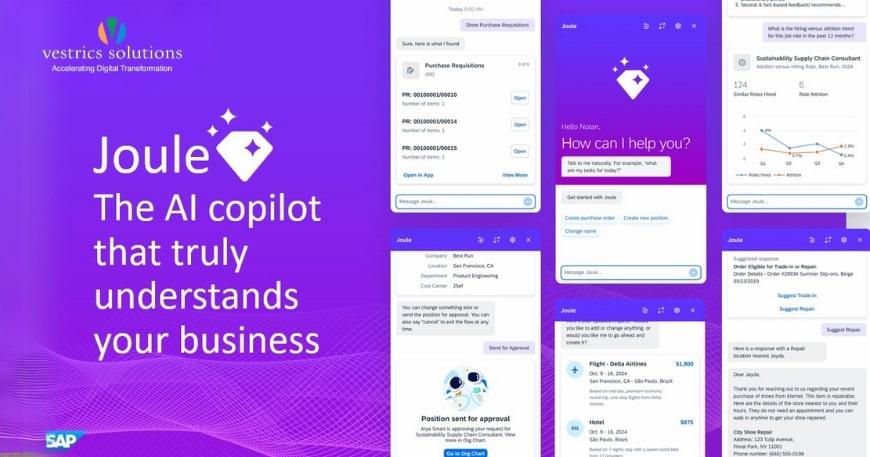Migrating to SAP S/4HANA Cloud: Digital Backbone for Manufacturers
Before 2024, only 28% of the original 35,000 SAP ECC customers had migrated to S/4HANA. While adoption is expected to speed up, projections now show that only 57% of ECC customers will complete their migration to S/4HANA by the end of 2027, when mainstream maintenance ends. By 2030, this adoption rate could increase to 80%, with full migration anticipated by the mid-2030s. In the current digital era, that’s a recipe for inefficiency and missed opportunities. Enter SAP S/4HANA – a next-gen system designed to connect every part of your operation in real-time. Migrating to SAP S/4HANA Cloud isn’t just about upgrading your software; it’s about transforming how your manufacturing business operates at a core level. SAP S/4HANA public cloud modernises your ERP systems. This blog will explore the importance of migrating to SAP S/4HANA Cloud, the steps involved in the migration process, the challenges faced during the migration, and how SAP S/4HANA cloud solutions can bring lasting improvements to shape the future of your manufacturing operations. Migration Challenges in the Manufacturing Sector Migrating to SAP S/4HANA Cloud offers significant benefits for manufacturers but also presents challenges. Below are the key challenges businesses face during the migration process: Data Migration Complexity: Migrating large volumes of data while ensuring accuracy and integrity can be challenging. Customization & Integration Issues: Legacy customizations may not align with SAP S/4HANA Cloud complicating integration. Resistance to Change: Employees and management may resist adapting to the new system, slowing down the transition. Downtime & Disruption: An efficient migration strategy minimizes system downtime, ensuring uninterrupted productivity and maintaining customer satisfaction. Post-Migration Support: After migration, ensuring continuous optimization and issue resolution with SAP S/4HANA support services. Overcoming Key Challenges in SAP S/4HANA Migration Many manufacturers struggle to make data-driven decisions due to outdated systems lacking real-time insights. Migrating to an advanced ERP system like SAP S/4HANA is essential to overcoming these challenges and driving sustained growth. Before migration, conducting a comprehensive data audit, cleansing and standardization is critical to minimizing errors and disruptions. Assessing customizations and collaborating with SAP experts ensures smooth integration while retaining key functionalities. Clear communication and robust training programs help employees adapt to the new system efficiently. Adopting a well-defined cost structure and leveraging cloud solutions like SAP S/4HANA public cloud reduces upfront infrastructure costs and ongoing maintenance expenses. Careful planning is essential. Manufacturers can choose a phased migration to minimize disruptions and maintain business continuity during the migration process. Leveraging SAP S/4HANA Cloud support services ensures proper system maintenance and optimization, while SAP S/4HANA Cloud provides a comprehensive solution for ongoing business transformation and long-term success. Why SAP S/4HANA? SAP S/4HANA Cloud is an intelligent, integrated ERP solution built on the next-generation SAP HANA database, designed to help manufacturers automate processes, enhance data accuracy and accelerate decision-making. With SAP S/4HANA cloud solutions, businesses can leverage industry-specific features for manufacturing, supply chain management, procurement and financial operations. The SAP S/4HANA public edition offers the flexibility and scalability of the cloud, enabling businesses to reduce costs, boost operational efficiency, and improve collaboration across the organization. The Need for Efficient Migration Migrating to SAP S/4HANA Cloud is a strategic investment to future-proof your business. As manufacturers face increasing pressure to modernize, traditional ERP systems fall short. SAP S/4HANA’s cloud-based solution boosts efficiency, reduces downtimes, and enables new opportunities. Cloud ERP migration services enable manufacturers to transition from outdated systems to SAP S/4HANA without disruption. The migration process is critical because it ensures that businesses can harness the full potential of their new ERP system from day one. Steps in the Migration Process Migrating to SAP S/4HANA is not a one-step process. It involves careful planning, analysis, and execution to ensure a smooth transition. Here are the key steps involved: Assessment & Planning: The first step is to assess your current IT landscape and business needs. This involves identifying the core business processes and understanding how SAP S/4HANA Cloud can streamline and optimize them. Data Preparation: Clean and standardize your data to ensure that everything is ready for the migration. This step is crucial for minimizing errors during the migration process. System Design & Configuration: Tailor SAP S/4HANA Cloud Solutions to fit your specific business requirements. This involves configuring workflows, user interfaces and customizing functionalities. Testing & Validation: Conduct tests based on real-world scenarios to confirm that the system meets business needs. Go Live & Support: Once everything is ready, it’s time to go live. With SAP S/4HANA support services, manufacturers receive continuous assistance to monitor and optimize the system post-migration. Impact on Business Efficiency SAP S/4HANA Cloud provides a unified platform for all operations, enhancing collaboration, streamlining processes, and driving efficiency. Key benefits include: Improved Decision-Making: Real-time analytics and insights empower decision-makers to make informed choices quickly. Increased Agility: SAP S/4HANA Cloud enables manufacturers to respond faster to market changes and customer demands. Enhanced Productivity: Automation of routine tasks allows employees to focus on strategic initiatives. Cost Reduction: Cloud-based solutions lower infrastructure and maintenance expenses, improving financial outcomes. Conclusion Migrating to SAP S/4HANA is a transformative journey for manufacturers, but it does come with its challenges. By recognizing these common obstacles and addressing these challenges, manufacturers can minimize risks, reduce downtime, and fully leverage SAP S/4HANA’s capabilities. With thoughtful planning, expert support and clear communication, businesses can adopt this next-gen solution and gain a competitive edge in the evolving digital landscape. Partner with Vestrics Solutions to streamline and enhance your business workflows. About Vestrics Solutions Vestrics Solutions is an authorized SAP Gold Partner with over 12 years of experience in delivering advanced solutions, helping manufacturers optimize workforce and increase efficiency. Ready to unlock growth, efficiency, and innovation for your manufacturing operations? Start your SAP S/4HANA Cloud migration journey today. Reach out to Vestrics Solutions.





